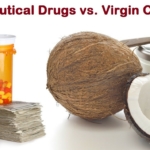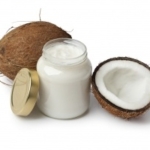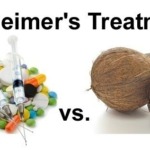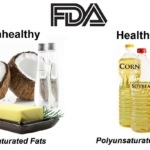
Traditional coconut oils are still made by hand. Photo by Brian Shilhavy.
Coconut Oil and Heart Disease
by Brian Shilhavy
I imagine everyone is different, but here’s my experience so far. In 2004 at age 61 I had a mild heart attack and blocked artery. My total cholesterol was 101 in the hospital. A couple of months later it was 134, after taking my cardiologist’s drug store. I stopped all drugs after that, realizing after researching them that they were worthless. I then came across virgin coconut oil. I have been taking between four and six tablespoons per day with meals since then. The results-
2004 HDL 45,LDL 73,TRIG 81,LDL/HDL Ratio 1.6, Total 134
2005 HDL 73,LDL 111,Trig 47 LDL/HDL Ratio 1.5, Total 193
2006 HDL 97,LDL 113,Trig 39,LDL/HDL Ratio 1.2, Total 218.
My next test will be in December. My 2005 results literally shocked my cardiologist. He said HDL doesn’t increase like that in people my age. I also passed a nuclear stress test last year. I saw my regular doctor last week, and he said I’m beating the odds on not having another attack. I think the [Virgin Coconut] oil along with a change of diet is the reason why. Roderick – The Coconut Diet Forums
When measurements of serum cholesterol (cholesterol levels in the blood) were first done, only the total of both HDL (“good cholesterol”) and LDL (“bad cholesterol”) were read (Note that even the concept of “bad” LDL cholesterol is being challenged today since also need this form of cholesterol to survive!). Now that testing has become more sophisticated, researchers look more at the balance of these two types of cholesterol. They note whether a substance raises cholesterol levels of HDL or LDL levels. In some cases, certain foods lower total cholesterol, but only by lowering HDL cholesterol while at the same time actually raising levels of the LDL cholesterol. Studies now show that coconut oil actually increases HDL cholesterol, while lowering LDL. So total cholesterol levels may actually increase, but in a very favorable ratio.
Population Studies
Coconut oil (and all saturated fats) has been blamed for many years as a cause of increased cholesterol levels, which supposedly leads to heart disease. But studies done on traditional tropical populations that consume large amounts of coconut oil show just the opposite. One of the best ways to study the affects of coconut oil on human nutrition is to look at tropical populations that get most of their caloric intake from the saturated fat of coconut oil. Logic would dictate that if the saturated fat/cholesterol theory of heart disease and obesity were correct, those populations with the highest consumption of saturated fats would be the most overweight and have the highest rates of heart disease. Such is not the case.
In a study published in 1981, the populations of two South Pacific islands were examined over a period of time starting in the 1960s, before western foods were prevalent in the diets of either culture. The study was designed to investigate the relative effects of saturated fat and dietary cholesterol in determining serum cholesterol levels. Coconuts were practically a staple in the diets, with up to 60% of their caloric intake coming from the saturated fat of coconut oil. The study found very healthy people who were relatively free from the modern diseases of western cultures, including obesity and heart disease. Their conclusion: “Vascular disease is uncommon in both populations and there is no evidence of the high saturated fat intake having a harmful effect in these populations.”1
I had been taking Tropical Traditions Coconut Oil for obvious health benefits when I realized one day that my knees weren’t hurting, so I stopped for a day or two and they hurt again. I have one artificial knee, and one that isn’t in very good shape, and they used to hurt all the time. When I resume the oil, the pain goes away, so that makes me very happy. Also, my cholesterol went from 242 to 218. I take about 2 teaspoon/day and haven’t gained any weight, although I eat anything I want, so it works for me. Darleen – Othello, WA
Another study was done on the Indian subcontinent comparing traditional cooking oils with modern oils in relation to prevalence of atherosclerotic heart disease and Type-II diabetes. Their conclusion: “In contrast to earlier epidemiologic studies showing a low prevalence of atherosclerotic heart disease (AHD) and Type-II dependent diabetes mellitus (Type-II DM) in the Indian subcontinent, over the recent years, there has been an alarming increase in the prevalence of these diseases in Indians–both abroad and at home, attributable to increased dietary fat intake. Replacing the traditional cooking fats condemned to be atherogenic, with refined vegetable oils promoted as ‘heart-friendly’ because of their polyunsaturated fatty acid (PUFA) content, unfortunately, has not been able to curtail this trend. Current data on dietary fats indicate that it is not just the presence of PUFA, but the type of PUFA that is important–a high PUFA n-6 content and high n-6/n-3 ratio in dietary fats being atherogenic and diabetogenic. The newer ‘heart-friendly’ oils like sunflower or safflower oils possess this undesirable PUFA content and there are numerous research data now available to indicate that the sole use or excess intake of these newer vegetable oils are actually detrimental to health and switching to a combination of different types of fats, including the traditional cooking fats like ghee, coconut oil and mustard oil, would actually reduce the risk of dyslipidaemias, AHD and Type-II DM.”2
Dr. Janaki Gooneratne’s Sri Lanka Study
In 2011 Dr. Janaki Gooneratne, the head of Food Technology at the Industrial Technology Institute in Sri Lanka, carried out an extensive research project to establish whether there was a relationship in the consumption of coconut oil with cholesterol, in the Gampaha District of Sri Lanka – an area known as the “Coconut Triangle” due to large coconut consumption.
Associations between selected cardiovascular disease risk factors and Coconut Fat intake were investigated by Dr. Goonerante using the Chi-square test. The data was then further examined in a multivariate model adjusting for potential confounding variables and analyzed using SPSS statistical software. The results of this extensive research concluded that consumption of CF at 16.4% of total energy per day had no CVD risk on the study population. (Read about the study here.)
Dr. Goonerante believes that her extensive research is the first study of this magnitude on coconut oil ever conducted anywhere in the world. Since coconut oil is a product that cannot be patented, it is very unlikely that such studies like this will ever be funded in western nations, and it is now up to the coconut oil producing countries to carry out this research and vindicate coconut oil from the attacks against it over the past several decades in the western nations like the U.S.
I have been on Virgin Coconut Oil (VCO) since early June (1T per day in oatmeal and using it on my skin). I had a blood test performed at the end of August. My total cholesterol did go up since last year from 168 mg/dL to 187 mg/dL currently as did my Triglycerides from 60 mg/dL to 72 mg/dL (all within normal range). My HDL (“good” cholesterol) jumped from 60 mg/dL to 85 mg/dL! My LDL (“bad” cholesterol) dropped from 96 mg/dL to 87 mg/dL. My Cholesterol/HDL ratio dropped from 2.8 ratio units to 2.2 ratio units. I live in a dry climate, but my skin is soft and smooth from using VCO. I find that the oil rids my face of wrinkles as others on the list have experienced. When I have dinner with my son at the restaurant where he works, his co-workers assume that I am a friend his age. They don’t believe him when he tells them that I am his mother. I had gained 20 pounds from forced inactivity due to disc problems in my back, but I have lost those and am now a size 4-6 again. I will definitely keep using the VCO. Gayle The Coconut Diet Forums
Faulty Science
In a lecture given in Viet Nam in 1996, Dr. Mary Enig stated that “The problems for coconut oil started four decades ago when researchers fed animals hydrogenated coconut oil that was purposely altered to make it completely devoid of any essential fatty acids. The animals fed the hydrogenated coconut oil (as the only fat source) naturally became essential fatty acid deficient; their serum cholesterol increased. Diets that cause an essential fatty acid deficiency always produce an increase in serum cholesterol levels as well as in increase in the atherosclerotic indices. The same effect has also been seen when other highly hydrogenated oils such as cottonseed, soybean or corn oils have been fed; so it is clearly a function of the hydrogenated products, either because the oil is essential fatty acid (EFA) deficient or because of transfatty acids.”3
What about studies where animals were fed unprocessed coconut oil? Enig wrote: “Hostmark et al (1980) compared the effects of diets containing 10% coconut oil and 10% sunflower oil on lipoprotein distribution in male Wistar rats. Coconut oil feeding produced significantly lower levels (p=0.05) of pre-beta lipoproteins (VLDL) and significantly higher (p=<0.01) alpha-lipoproteins (HDL) relative to sunflower feeding.”4 She also cited a study by Awad (1981) on Wistar rats fed a diet of either 14% (natural) coconut oil or 14% safflower oil. She stated: “Total tissue cholesterol accumulation for animals on the safflower diet was six times greater than for animals fed the [unhydrogenated] coconut oil. A conclusion that can be drawn from some of the animal research is that feeding hydrogenated coconut oil devoid of essential fatty acids (EFA) potentate the formation of atherosclerosis markers. It is of note that animals fed regular coconut oil have less cholesterol deposited in their livers and other parts of their bodies.”5
Do Saturated Fats Clog Arteries?
Saturated fats are probably the most maligned fats in the popular media today. They are often blamed for “clogging arteries” and leading to heart disease. However, an examination of the research and science behind saturated fats leads one to a vastly different conclusion, suggesting that the attacks against saturated fats have been primarily political and economical, and not scientific. While we will provide a brief summary of the science behind saturated fats here, we encourage you to examine the research more closely yourself.
First of all, saturated fats are essential to our health. They comprise about 50% of our cell membranes, and some proportion of saturated fats are found in all fats and oils, whether plant based or animal based.
In recent years some have made claims that too much saturated fats in our diet can lead to higher cholesterol levels and clogged arteries, which leads to heart disease. So an anti-saturated fat campaign was launched in the U.S. in recent years. As a results, Americans have consumed less saturated fats than any other nation, yet the U.S. is still a world leader in deaths from heart disease. Obesity rates are also at an all-time high. Many are now questioning the “wisdom” behind the low-fat nutritional advice that has dominated the popular media (see Coconut Oil and Weight Loss.)
Does research support the claim that saturated fats like coconut oil raise cholesterol levels and clog arteries? This “lipid theory” of heart disease, which blames high cholesterol levels as causing heart disease, is seriously being questioned by researchers and doctors. Malcom Kendrick M.D., Dr. Mary Enig Ph.D., Uffe Ravnskov M.D., Ph.D (author of The Cholesterol Myths), George Mann M.D., Sc.D, and many other top researchers have written extensively on the flaws of the “cholesterol theory” of heart disease.
As to the research on “clogged arteries”, a study was done at the Wynn Institute for Metabolic Research, London, examining the composition of human aortic plaques. This study found that the “artery clogging fats” in those who died from heart disease were composed of 26% saturated fat: the rest (74%) were polyunsaturated fatty acids, such as those found in vegetable oils commonly consumed in today’s modern societies. Their conclusion: “No associations were found with saturated fatty acids. These findings imply a direct influence of dietary polyunsaturated fatty acids on aortic plaque formation and suggest that current trends favoring increased intake of polyunsaturated fatty acids should be reconsidered.”6
My doctor wanted me to start taking pravachol to lower my cholesterol, which was 219. He said because you are diabetic, I don’t want you to have a heart attack once your blood sugars are under control. I told him I wanted to see if I could bring my cholesterol down naturally with VCO and eating right. I began taking VCO last spring when I read about it in Woman’s World Magazine. At the time I had a lot of problems with hypothyroid, fibromyalgia, IBS, candida, super dry skin and skin rashes, etc. I have stopped taking all meds for my gastrointestinal symptoms and my skin is now silky soft and smooth. My blood work done on December 4, 2003 showed my cholesterol was down 31 points to 188 mg/dl. Ann The Coconut Diet Forums
Hi I don’t post often but felt I had to on this one. I just got back from the Dr.’s office and my total cholesterol went [down]. My doc was SO happy. I’ve been going to her for over 15 years and dreaded every time I got the blood test. It was always the same thing – a lecture. I had always used olive oil for years but started using coconut oil for most of our cooking (olive oil occasionally). My cholesterol results after at least 15 years of being high: triglycerides was 187…now 109. Cholesterol, total was 260…now 185. Chol/hdlc ratio…5.41…now 4.1. Glucose….105…now 94. My doctor was ecstatic. I believe I already mentioned this, but I can now use these statistics for anyone that gives me a hard time [about using Virgin Coconut Oil.]Sally Ann The Coconut Diet Forums
Virgin Better than Refined Coconut Oil
A recent study done in India comparing refined coconut oil (CO) with Virgin Coconut Oil (VCNO) found that VCNO obtained by wet process has a beneficial effect in lowering lipid components compared to CO. It reduced total cholesterol, triglycerides, phospholipids, LDL, and VLDL cholesterol levels and increased HDL cholesterol in serum and tissues. The results demonstrated the potential beneficiary effect of virgin coconut oil in lowering lipid levels in serum and tissues and LDL oxidation by physiological oxidants. This property of VCNO may be attributed to the biologically active polyphenol components present in the oil.
I use virgin coconut oil, olive oil, and butter in my cooking and add extra virgin coconut oil to my smoothies, and I also eat coconut oil just by the tablespoon. My total cholesterol went down over 100 points. HDL and LDL were great! My coworkers could not believe I was eating so much fat and watching my cholesterol levels go down. I had to take a fasting [blood] test to prove it to them. I have lost 18 pounds in three months. I have learned a new way of life and it’s easy. I’m healthier for it, too. I will never count calories again!Laurel – The Coconut Diet Forums
About the author: Unlike many people who write about coconut oil by simply reading about it, Brian Shilhavy actually lived in a coconut producing area of the Philippines for several years with his family, observing firsthand the differences between the diet and health of the younger generation and those of his wife’s parents’ generation still consuming a traditional diet. This led to years of studying Philippine nutrition and dietary patterns first hand while living in a rural farming community in the Philippines. Brian is the author of the best-selling book: Virgin Coconut Oil: How it has changed people’s lives and how it can change yours!
Read the Virgin Coconut Oil eBook on Your Mobile Device!




 The FDA has NOT Banned Trans Fats! Traditional Saturated Fats like Coconut Oil Continue to Shine for Alzheimer's Disease but are Condemned by U.S. Dietary Advice
The FDA has NOT Banned Trans Fats! Traditional Saturated Fats like Coconut Oil Continue to Shine for Alzheimer's Disease but are Condemned by U.S. Dietary Advice The Evidence of Coconut Oil's Superiority Over Drugs in Destroying Pathogens Continues to be Published in Peer-Reviewed Journals
The Evidence of Coconut Oil's Superiority Over Drugs in Destroying Pathogens Continues to be Published in Peer-Reviewed Journals Study: Virgin Coconut Oil Protects Neuronal Damage and Mortality after a Stroke Incidence
Study: Virgin Coconut Oil Protects Neuronal Damage and Mortality after a Stroke Incidence Another Phase 3 Trial Failure to Develop an Alzheimer's Drug Shows Why Virgin Coconut Oil is Needed to Prevent Dementia
Another Phase 3 Trial Failure to Develop an Alzheimer's Drug Shows Why Virgin Coconut Oil is Needed to Prevent Dementia FDA Food Police want to Dictate What Foods are "Healthy" in New Guidelines Criminalizing Traditional Fats Like Butter and Coconut Oil
FDA Food Police want to Dictate What Foods are "Healthy" in New Guidelines Criminalizing Traditional Fats Like Butter and Coconut Oil